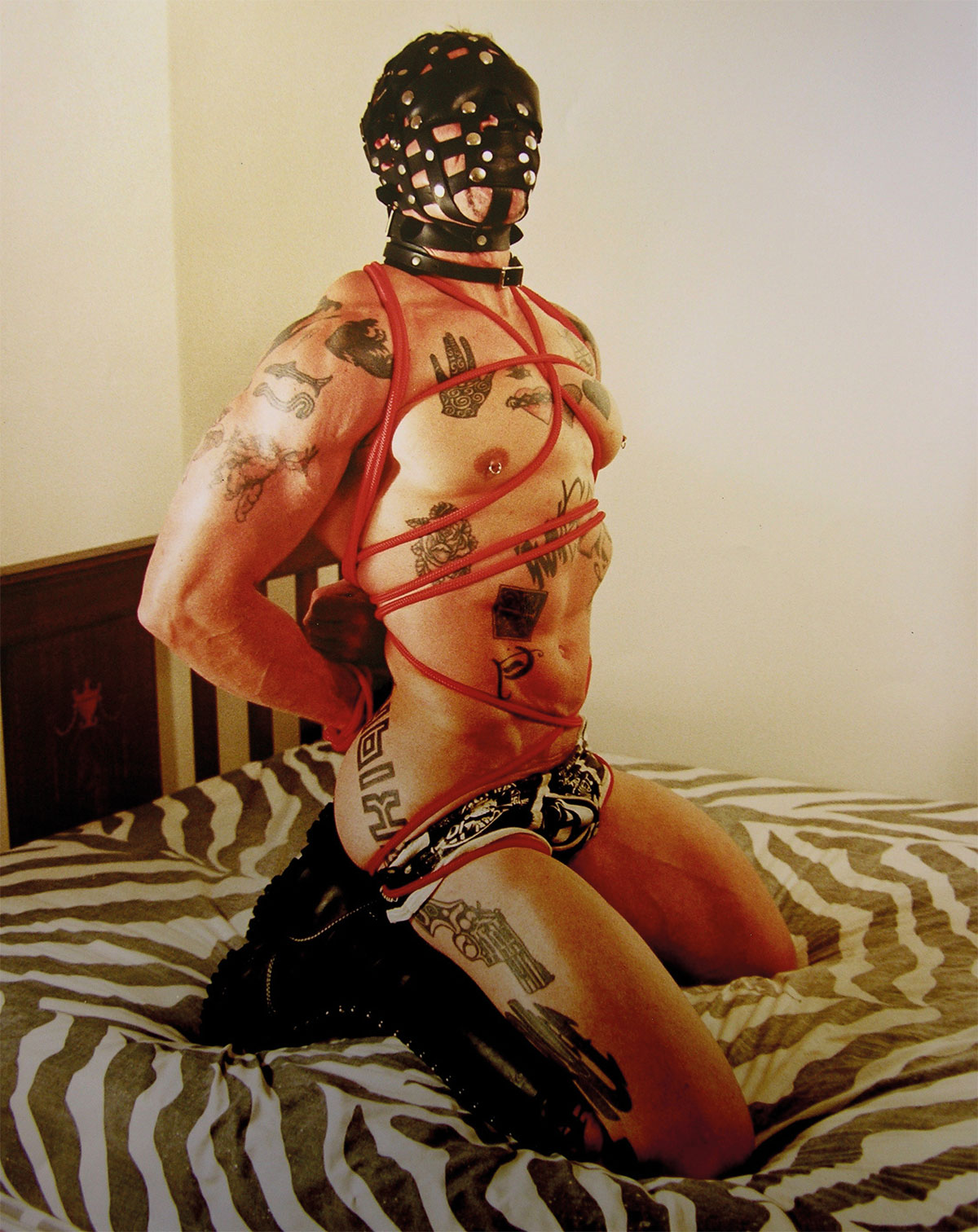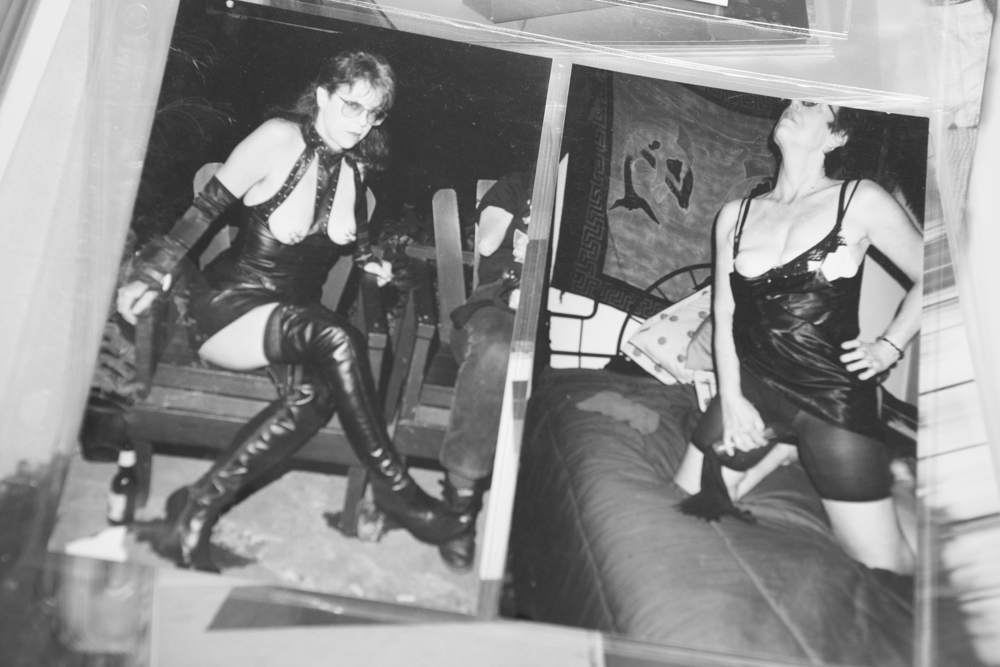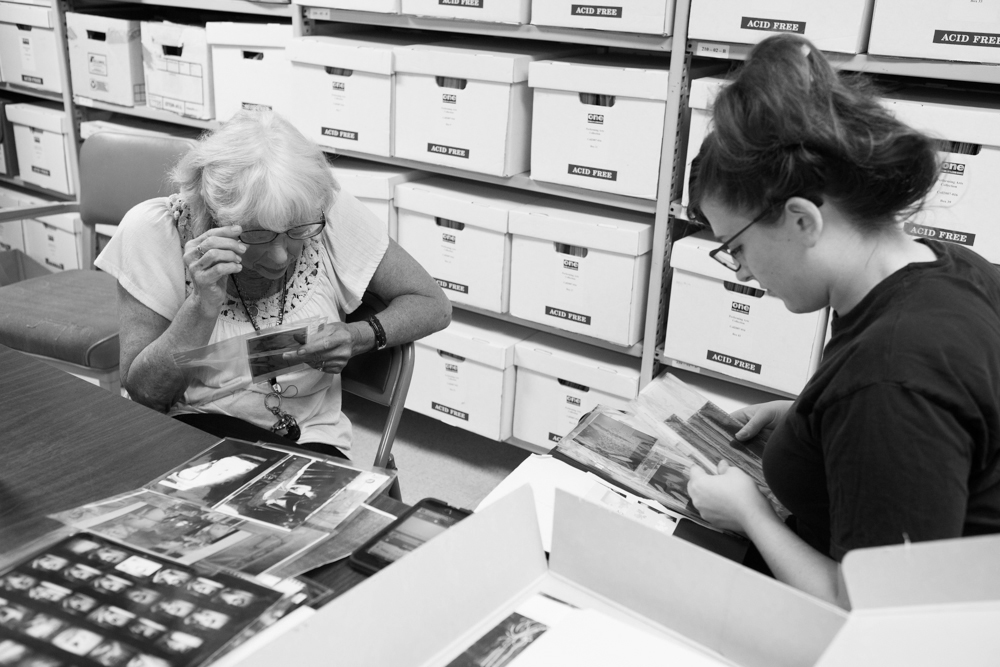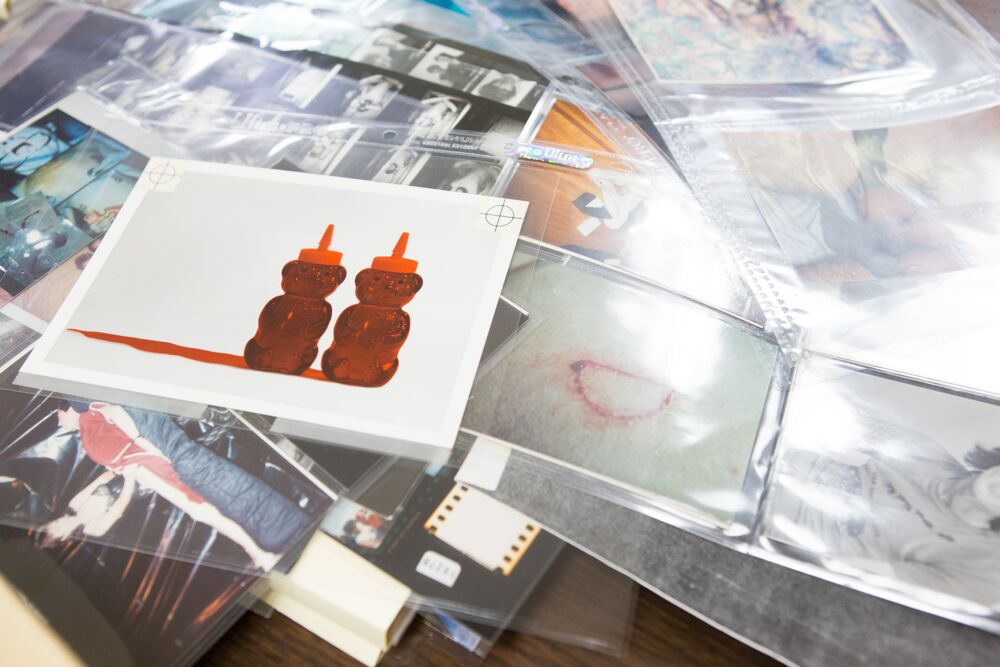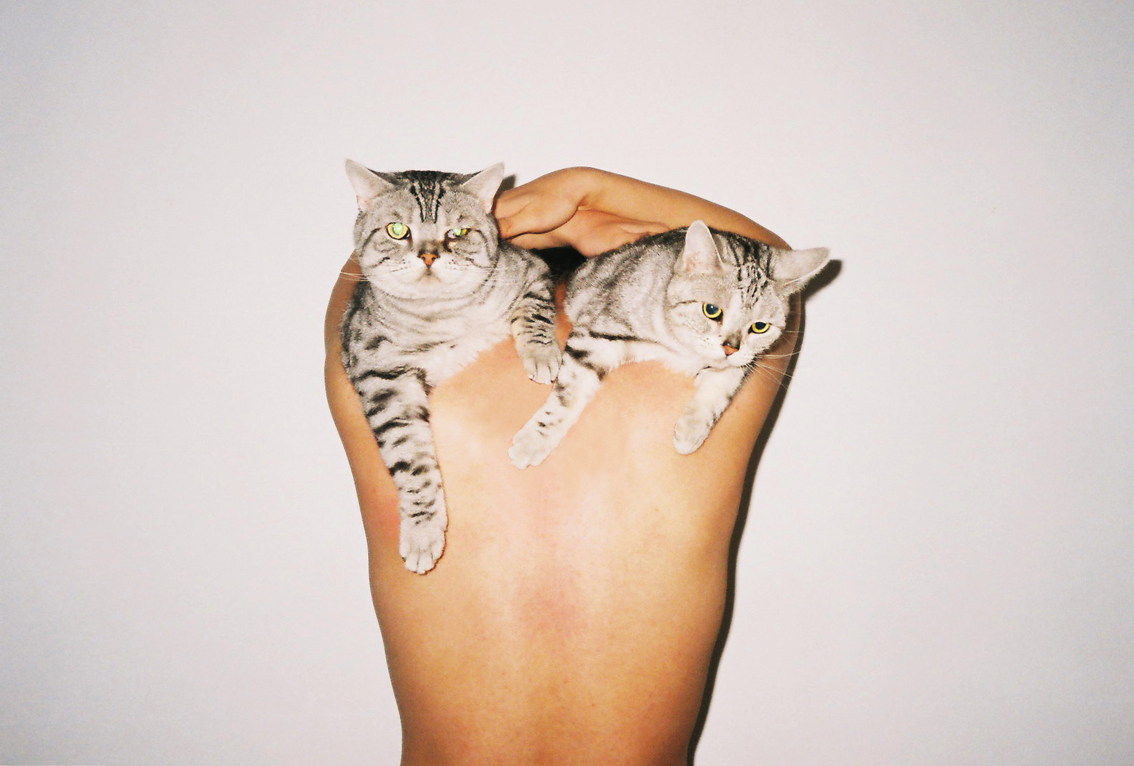Aiden Starr has the most magnificent rack I’ve ever come in contact with. Aside from her undeniably pronounced assets, Aiden is articulate and knowledgeable about what she does and has nothing to hide because of it. She is one of the most accomplished women in porn, exposed and giving no apologies. Straight forward and cutting; she tells it like it is and that is what I cherish about her as a friend and a colleague. She calls bullshit, she celebrates the good, she treats sex work with care and consideration. For her, porn is a humanist pursuit as she acts as a matchmaker between client and provider on all levels of the industry. I caught up with the 4’11” blonde bombshell and her sweet porn chum, Daisy Ducati, at the Beverly Center in mid-January after an Evil Angel shoot. I hung around while they shopped for their dresses for the 2016 AVNs and XBIZ awards while asking questions about her career and the porn industry at large, and learned more about her impressive roster of porn films, both as a performer and a director, past and upcoming and other untouchable arenas: agency, anal, and attitude. Some men seemed to recognize both of the girls as we walked through the mall, but I remained the invisible pervert.
Audra Wist: My interest in you has always been about you being super professional and somebody who has successfully crossed over hardcore porn and femdom and also somebody is who both a performer and a director. I am not so involved in the porn industry to know how common that is, but it doesn’t seem—
Aiden Starr: It’s not. Male performers and directors are way more common than female performer/directors.
Wist: So, was that a part of your trajectory when you started out… like you said, okay, I’m going to perform and I definitely want to get to directing eventually, this is something I’m interested in technically... or was it more or less I’m going to get into this and see how I do and play it by ear?
Starr: My first sex worker job was a phone girl in a dungeon. What a phone girl means is the girl who picks up the phone, who books the sessions for the other girls and who preps the equipment in the room and who keeps the time. And working on the magazine that the dungeon put out at the time cause this was the 90s.
Wist: And this was in New York?
Starr: Yeah, New York. And also working on the website, updating. But most of what I did and what I was really good at was managing the clients. I really liked submissive girls - that’s why I started working there. My buddy was a bottom and we played together and she started working there and she asked me to work there with her because she wanted me to work on her shifts, be the phone girl, and book all of her sessions. Get her guys that she liked and make good matches for her. So, my initial interest in the adult industry was making good matches between clients and providers to make the job enjoyable - to make the experience enjoyable for not only the clients, but also for the providers. Not only was a monetary exchange, but an exchange of a good time and a good energy.
Wist: Right, that’s what it’s about.
Starr: I didn’t start working in that kind of adult film until I was working in the dungeon for a couple of years and then I only did it with women who were my lovers in real life. Before I graduated high school, I thought about applying to Tisch [School of the Arts, at NYU] and had prepared an application, so I was familiar with video medium and had directed stuff before. In fact, the very first thing I directed, I was a twelve-year old and I directed a mockumentary on date rape.
Wist: Really? That’s great! Wait, so did you-
Starr: It was a dramatization. It was a girl and a guy going back and forth, talking about their experiences, like a he said/she said reenactment of it with a party scene: people drinking too much and the concept of date rape. She didn’t know why they were going into the bedroom because she’s young and didn’t have the experience... and he didn’t understand that she didn’t know why they were going into the bedroom because why would she go into the bedroom if she didn’t want to be there? That kind of scene. I wrote these scripts out for my friends, who were twelve, and I made them do it.
Wist: [laughs] Oh, you “made” them do it - that is your career in a nutshell.
Starr: And it was also kind of a porn, a soft-core porn. Now, my version of this was them getting under the covers and moving under the sheets because when you’re twelve you think that’s what sex is. You just pull the sheets over your head and move around.
Wist: That is so funny.
Starr: But that, theoretically, is a soft core porn. So, I guess if you look back early enough, I was always going to end up where I ended up but that’s not what initially sparked my wanting to be a sex worker. It’s like a spa, going to see a provider. It’s beautiful and it’s fantasy and it’s like watching one of those movies from the 80s like Legend or Labyrinth where everybody is amazing and is in a castle and there’s a princess. And to me, it was helping people with their castle fantasy.
Wist: You see a smattering of people in the adult industry, or maybe this is any industry, but you have people who are the real deal and people who are eh, what are you doing here.
Starr: Tourists.
Wist: Right, tourists. And I feel so much of what’s going on, all this shit about sex positivity and feminism, it’s all just internet chatter and no real showing up. Show up and do something. For you, it’s like here I am: a director for a huge porn company. Here I am: performing in porn. Here I am: a mainstay in porn and have been for a long time. What do you think about all the stuff that’s being thrown around on the internet online… I’m trying to think of an example…
Starr: Oh, you can think of an example. Just try real hard.
Wist: What are you thinking of?
Starr: The James Deen thing.
Wist: Oh, yes! Of course. I honestly did not even think of that when I was thinking of these questions but that is perfect. We should talk about that.
Starr: That’s a great example of sex workers espousing feminism in social media. The fact that, to these women, you always take the side of a woman whenever she claims to have been raped, that is part of their perceived definition of feminism. Which is interesting, because for me rape is not a gender-based issue. I know just as many men, or trans, or otherwise gendered people, who are sexually assaulted as I do women. So, I don’t see rape culture as a feminist issue. I see it as a humanist issue. And it’s interesting because it’s being ascribed to a feminist issue. People claiming “women get raped, women get raped, women get raped.” People get raped. Human beings get raped. And I think that’s kind of getting lost while people are espousing the idea of rape culture and the knowledge that this does exist. A man was trying to convince me the other day that rape culture doesn’t exist and I said “God bless you that you don’t know that that exists.”
Wist: Damn.
Starr: Seriously, bless your existence and that you don’t act that way towards people. Bless your parents for not fucking you up the way that a lot of other people are fucked up. It’s a thing, it’s a real thing. But I don’t think that it has to be under the feminist banner and I think that it is being ascribed to the feminist banner by sex workers or sex positive people in social media. It’s interesting to see the dynamic of where feminism was in the 60s, 70s, 80s, 90s, and today. Today it’s all about preventing victimization and I feel like many many years ago it was about empowerment and equality. I’m not sure how that happened.
Wist: Preventing of victimization. So, do you think that there’s an alternative to that view? Not that this is a say-all-end-all my-little-constitution of feminism or whatever, but is there anything we can do? Or is it just being somebody who is doing the work and not being “I’m gonna go on the internet and say what I think about this thing that I have no first-hand knowledge of whatsoever!”
Starr: I think for me feminism, at it’s core, is about equality. It’s about people being equal to people. You obviously could go into the history of it and it’s present-day application and the issue, be they American, Central American, South American, African, European, Australian, Asian, whatever pocket of the world, and how feminism plays out in certain area, but for me, it’s about everybody being equal to each other.
Wist: Straight forward, straight up.
Starr: That’s kind of how I’ve always seen it. Everybody deserves common human rights.
Wist: Yeah, there was a gal [Laurie Penny] who wrote a piece for TIME and it was this call to arms, like we have to do something about this, isn’t this horrible and I thought yes, of course rape is horrible—
Starr: Yes! No one is arguing that! No one has ever been like this is totally fucking fine. Only the idiots are saying “she asked for it” and no one listens to them. They’re idiots and we all know they are idiots. Feminism has definitely become more anti-male. Feminism looks closer to female supremacy than it does feminism.
Wist: Right, it does! I wrote down one time “I am a female supremacist but I don’t devalue men,” and I could not for the life of me figure out what that meant. But now, hearing you say that, maybe I was trying to ascribe to a particular brand of contemporary feminism while wanting to break away or find some alternative that felt right. I looked at that sentence a lot. Do you think that that’s why there’s been a rise in femdom porn? I don’t know the numbers, but do you think there’s been a significant spike?
Starr: Why there’s been a rise in femdom porn is such an interesting fucking question. It’s one of my favorite subjects to talk about. When I talk to clients about porn and why they watch it, I always pick their brains and it’s so interesting to see that side where subs have no control and they like having no control. Whereas, if you play with a girl and it’s a girl/girl situation, the girls like “you can do this to me, you can do that to me, but I don’t like that and I don’t like this, period.” Whereas, guys just want to be this rock bottom. It’s so different between the two genders and their perception of being submissive. It’s fascinating! I have no fucking idea why except that money is so important in today’s society that I’m sure it has something to do with the burden that men are supposed to be the primary breadwinners.
Wist: Yes, I was thinking the same thing. It has something to do with money as it’s so closely related to power.
Starr: Yeah, findom [financial domination] is huge.
Wist: I think it’s also that because of money, people acquiring large sums of it, people are too comfortable and they really seriously do not know what to do with all of it. And then it gets mixed in with desire or their dick or—
Starr: It’s burning a hole in their pocket.
Wist: Right.
Starr: I think men also feel like the pressure is on them in social situations to engage women and do they like the sexually aggressive archetype because it takes the pressure off of them. So, why I think that any kind of porn rises, any kind of art rises, any kind of entertainment rises, at all in any medium, is culture. The pervasive language of the culture directly affects femdom. What that language is is debatable but definitely male responsibility and that they feel burdened by society in some way, shape, or form to still be the sexual aggressor or monetary provider affects femdom. And going back to feminism, maybe that’s why all these girls are angry on the internet because their realities are not pleasing to them.


